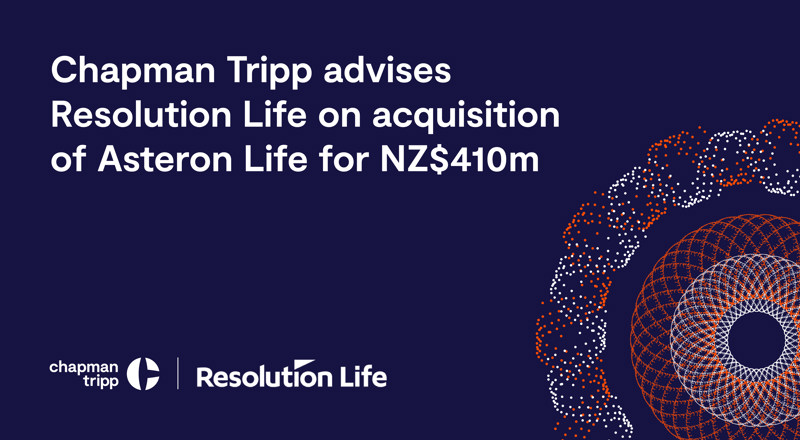Initiative
Chapman Tripp 2023 Community Report
11 April 2024
In our 2023 Community Report, we are proud to spotlight some of the many, varied and incredible organisations we have had the privilege to work with, and amazing projects we have participated in, as p…
News
Chapman Tripp advises Resolution Life on acquisition of Asteron Life for NZ$410m
05 April 2024
Leading global life insurance group, Resolution Life, has entered into an agreement, through its trans-Tasman holding company, with Suncorp Group to acquire its New Zealand life insurance company, Ast…
News
Chapman Tripp named Firm of the Year at IFLR Asia Pacific Awards
22 March 2024
Chapman Tripp has won two awards at the IFLR Asia-Pacific Awards, which celebrate the achievements of the financial law community.
News
Legal opinion finds regulatory settings discouraging some investment options for KiwiSavers
29 February 2024
KiwiSaver investors should have the option to benefit from an asset class that can deliver long-term value.
News
Three Senior Associates recognised by NZ Lawyer as Rising Stars
28 February 2024
We are delighted that Kishan Gunatunga, Rachael Jones and Rosa McPhee have been recognised as Rising Stars by NZ Lawyer.
News
Philip Ascroft appointed to NZ Shareholders’ Association board
19 February 2024
Chapman Tripp Senior Associate, Philip Ascroft has been appointed as an Associate Director to the board of the NZ Shareholders’ Association (NZSA).






